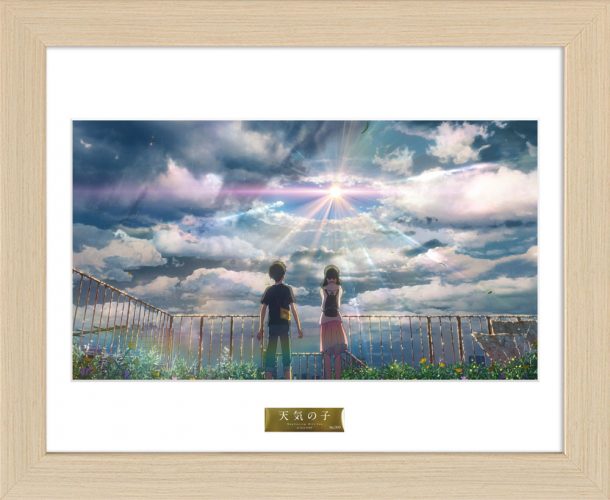
Makoto Shinkai’s 2019 supernatural drama Tenki no Ko made a huge splash with its moving storyline, beautiful art, and great music. Reminiscent of anime like Your Name and Patema Inverted, Weathering with You takes us into a world much like ours but a little more magical. This supernatural setting allows the creators to convey ideas and metaphors in a way so artistically poetic that it’s easy to dismiss them as simple fantasy. But, though based on Japanese folklore, there is a root in reality to the events in Weathering with You. Join us for a brief discussion on the not-so-hidden message in Shinkai’s Tenki no Ko.
Background
As many anime fans know, a rain woman (or ameonna in Japanese) is a woman who can make it rain or causes it to rain, thus “ruining” important events—all based on a yokai by the same name. And as it is briefly explained in Weathering with You, in their world, these women actually are born with that trait and if too many of them and/or snow women (yukionna) appear at any given time, the weather is disturbed and a so-called sunshine woman will appear to bring balance again to the world.
Sunshine People
In Weathering with You, Hina is overjoyed every time she is able to make someone’s day better by praying the rain away. Not only is she making money and has a new friend but she’s happy to make others happy. But eventually, she runs herself ragged and starts literally fading away from using her power too much.
Here’s where we can start seeing the parallels between Hina the magical sunshine woman and reality. Much like Hina, there are many women—more so in some cultures than others—who, at a relatively early age, decide that all they want is to make others happy and fix everyone’s problems. Naturally nurturing, women are more likely to fall into this frame of mind as they are usually the caregivers in the home and the ones everyone runs to when they need love, a hug, or a shoulder to cry on. Of course, there are also men who feel this way and all they want in life is for everyone to be happy and help people avoid feeling sadness or pain if they can.
While that is a noble way to live, as selfless as it is, it can have negative effects. Just how Hina starts fading away, sunshine people can wear themselves out always worrying about others and overworking themselves for others while ignoring their own health, needs, and wants, sometimes to the point that they end up hospitalized or in abusive relationships in which they get taken advantage of.
Pray for Yourself
What pulls it all together and brings these circumstances into focus is when Hodaka complains about the rain without even thinking and Hina asks him if he wants the rain to stop, to which he replies “yeah” before falling asleep. Knowing she’s at her limit, her love and her nature drive her to make the ultimate sacrifice and so she prays for the rain to stop so Hodaka will be happy. And then, she’s gone; transported to the world in the clouds until Hodaka risks it all to rescue her. Hodaka realizes what happened and that she sacrificed herself for him so he tells Hina he prefers her to a blue sky, that even if it rains every day, that doesn’t matter if she’s there with him and happy. And as the two free-fall from the clouds, Hodaka tells Hina the words that every sunshine person should live by: “pray for yourself”. And so she does, they both are saved, Hodaka has to finish school on his island and comes back three years later to a self-confident, still caring but full of self-love, Hina.
Sunshine people choose to be that way for different reasons but in the end, it’s important to remember that caring for oneself doesn’t mean one is selfish. While it is beautiful and rewarding to make others happy, we can’t make others happy if we are not healthy or truly happy ourselves, just as we can’t love somebody until we learn to love ourselves.
Final Thoughts

Trying to make everyone happy can be draining and exhausting but, in the end, it is nobody’s duty to make everyone happy. And really, if we are happy ourselves, love others and have compassion for others, we will be the sunshine in people’s lives without having to sacrifice our health, personality or life.
We hope you enjoyed our little study on the strong message in Tenki no Ko and the idea of sunshine women/people. Did you watch the movie? What did you think? Did you cry on the “pray for yourself” part? We teared up a bit… Share your thoughts down in the comments below!
Nya~!


